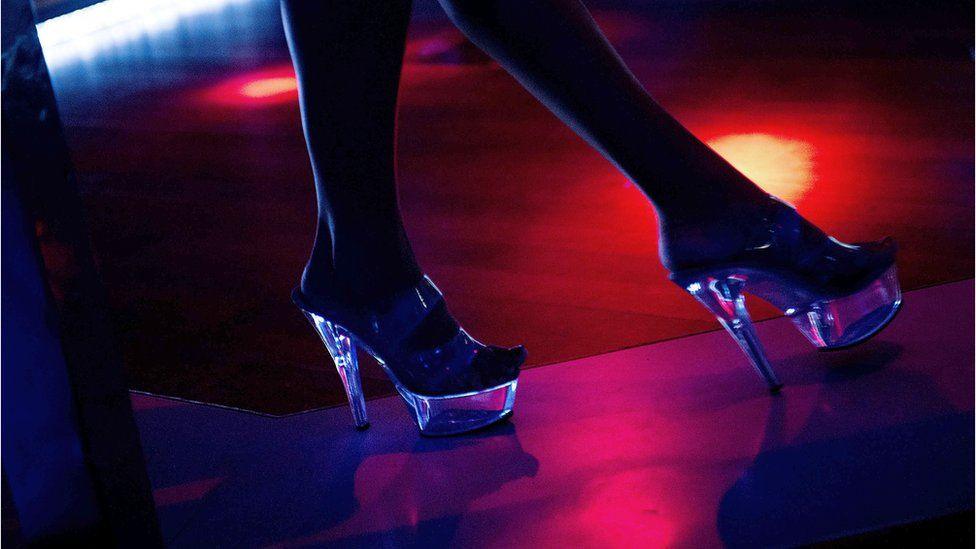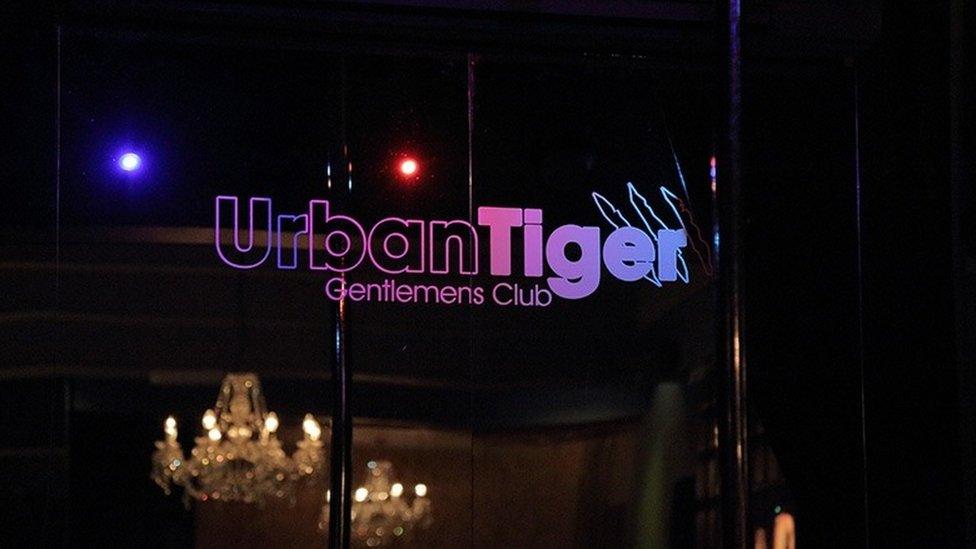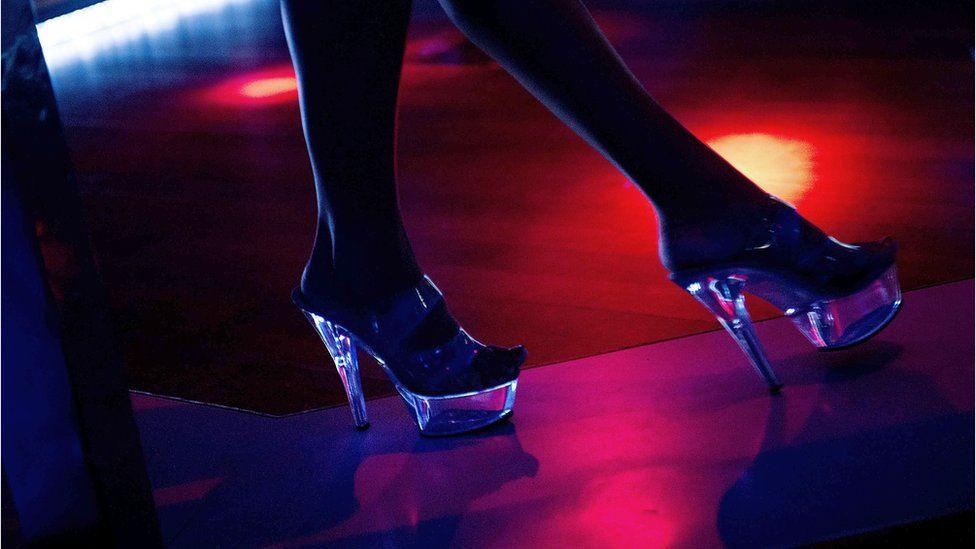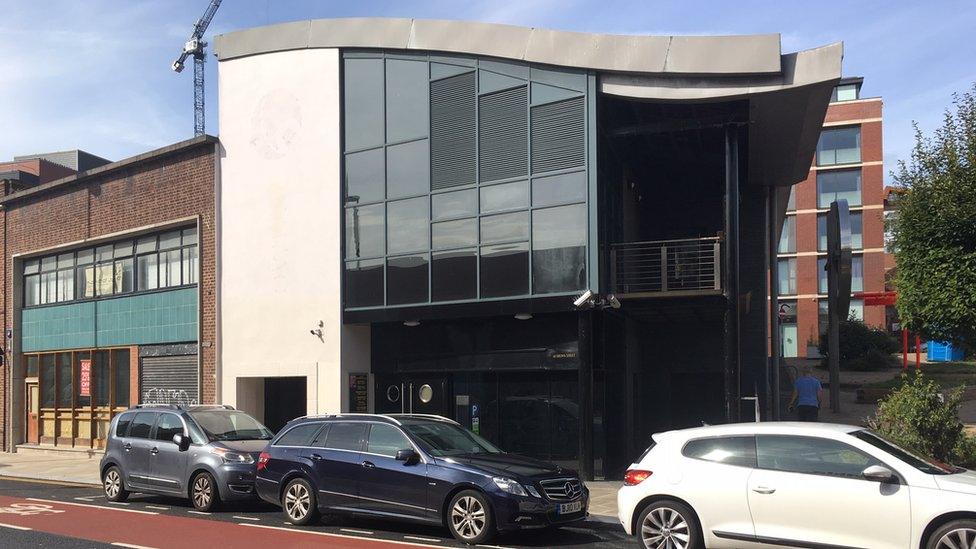Bristol Strip club dancers speak out against ban proposal
- Published

A consultation about sexual entertainment venues is likely to follow Bristol City Council's licensing committee meeting on 8 March
Dancers who perform at sexual entertainment venues (SEVs) fear a proposed ban could have a "devastating" impact on their livelihoods and safety.
If Bristol City Council votes for the ban on 8 March, a 12-week public consultation will follow.
Women's rights campaigners back the closure of SEVs, claiming their existence is "licensing sexism".
But strip club employees said it could lead to exploitation if the industry went "underground".
The council's licensing committee will vote on the proposal - called a "nil cap" - on 8 March.
Strip and pole-dancing clubs are legal and it is up to individual councils whether to grant licences.
Stephanie, 23, who started performing when she moved to Bristol as a university student four years ago, said she had used up more than £10,000 of savings from her work at the club on living costs while it has been closed in lockdown.
She said: "I would be absolutely devastated if a ban was to go through.
"Their [the council's] reasons are so out of touch. They have this theory that SEVs are causing an increase in sexual violence in the area.
"There is no evidence for that."
Public consultations showed the majority of respondents were happy for SEVs to operate in Bristol, provided they were away from places such as schools and places of worship.
At the annual licence renewal hearings for venues Urban Tiger and Central Chambers in 2019, pole-dancers said they were feminists and had a right to choose how they earned a living.
But their licence renewal was opposed by prominent figures including Bristol mayor Marvin Rees and Avon & Somerset police and crime commissioner Sue Mountstevens.

One dancer said banning venues like Urban Tiger would drive the industry underground
Organisations such as Bristol Women's Voice have called for SEVs to be banned.
In a statement to the licensing committee, it said: "It is our clear view that the women of this city stand no chance of gaining equality with men while the council continues to licence sexism via SEVs."
A Bristol City Council report prepared ahead of the 8 March meeting said some research showed lap-dancing clubs "normalise the sexual objectification of women" and "may attract and generate prostitution".
But the report also said there was no evidence of a rise in crime in the vicinity of Bristol's SEVs, and banning the clubs was likely to have a negative impact on the livelihood of predominantly female employees.
Kayleigh Hide, 33, a lap-dancer at the clubs from 2017 to 2020, said the ban would be "irresponsible" and would "drive the industry underground" where it would become dangerous.
She said: "This will create a void that could be used by some to exploit vulnerable people who would otherwise have legitimate jobs in the clubs.
"The women want to be there. It's their choice, it's their job, and we all pay our taxes.
"It's not this seedy place where people lurk in the middle of the night."
Related topics
- Published1 March 2021

- Published13 October 2020
